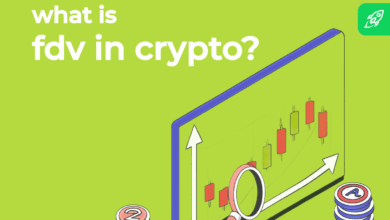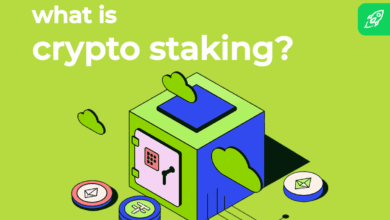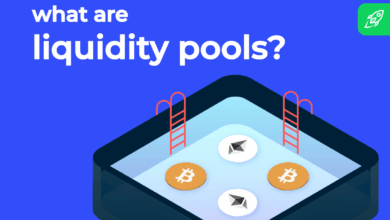Best NFT Wallets in 2023
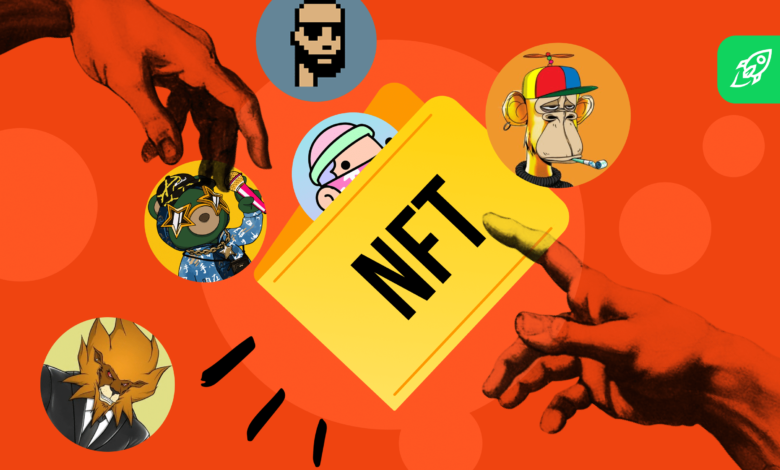
beginner
Non-fungible tokens (NFTs) are unique digital collectibles that are used to verify ownership in virtual worlds, like gaming, art, and others. If you’re interested in owning or trading these types of digital treasures, then you’re going to need an NFT wallet. But what is the best NFT wallet?
In this article, we will look at 7 of the best crypto wallets available today, but before we move on to the list, we need to clarify some terms.
Custodial vs. Non-Custodial Wallets: What’s the Difference?
Custodial and non-custodial wallets are two types of cryptocurrency wallets that serve different purposes and offer different levels of security.
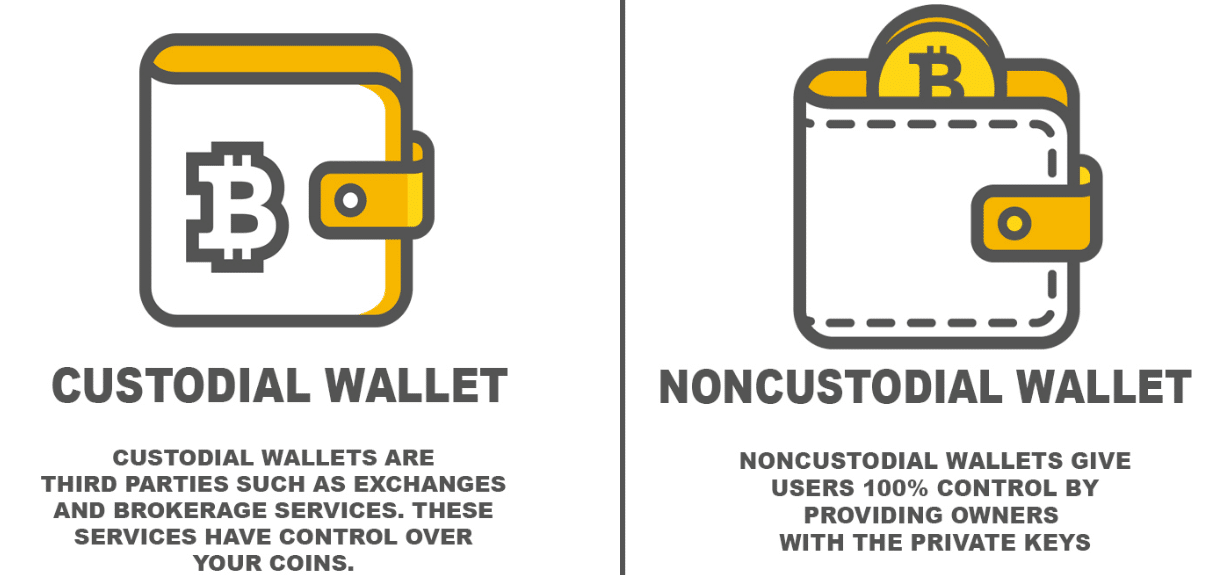
What is a custodial wallet?
A custodial wallet is a type of wallet where a third-party service provider holds the private keys of the wallet on behalf of the user. This means that the service provider has control over the user’s funds and is responsible for storing, securing, and managing the user’s cryptocurrencies. Examples of custodial wallets include exchanges and online wallet services.
What is a non-custodial wallet?
In contrast, a non-custodial wallet is a type of wallet where the user holds their own private keys and has full control over their cryptocurrencies. Non-custodial wallets can be hardware wallets, desktop wallets, or mobile wallets; they allow users to store, send, and receive cryptocurrencies without having to rely on a third-party service provider.
Which one to pick?
The key difference between custodial and non-custodial wallets is the level of control and security they offer. Custodial wallets can boast convenience and ease of use, as users do not need to worry about managing their own private keys or securing their funds. However, custodial wallets also pose a higher security risk, as users are entrusting their funds to a third-party service provider that may be vulnerable to hacking or fraud.
Non-custodial wallets, on the other hand, offer greater security and control, as users hold their own private keys and are responsible for securing their funds. However, non-custodial wallets also require more responsibility and technical knowledge from the user, as they need to take measures to protect their private keys and prevent the loss or theft of their cryptocurrencies.
In summary, custodial and non-custodial wallets offer different trade-offs between convenience and security, and users should choose the type of wallet that best fits their needs and risk tolerance.
Hot vs Cold Crypto and NFT Wallets
Hot and cold wallets refer to two different types of cryptocurrency wallets. These terms can also be applied to NFT wallets.
What is a hot wallet?
A hot wallet is a type of wallet that is connected to the internet and can be used to quickly and easily access and transfer cryptocurrencies or NFTs. Examples of hot wallets include desktop wallets, mobile wallets, and online wallets. These wallets are convenient and easy to use, but they can be more vulnerable to hacking and other security threats due to their constant online connectivity.
What is a cold wallet?
A cold wallet, on the other hand, is a type of wallet that is not connected to the internet and is often used for the long-term storage of cryptocurrencies or NFTs. Examples of cold wallets include hardware wallets, paper wallets, or other forms of offline storage. These wallets offer a higher level of security as they are not susceptible to online attacks, but they may be less convenient to use and access.
Which one to pick?
When it comes to NFT wallets specifically, the same principles apply. Hot NFT wallets, such as those provided by online marketplaces like OpenSea, allow for quick and easy buying and selling of NFTs, but they may not offer the same level of security as cold NFT wallets.
Cold NFT wallets, on the other hand, offer a higher level of security as they store NFTs offline, but they may require more technical knowledge or be less convenient to use.
To sum up, the choice between a hot or a cold wallet for cryptocurrencies or NFTs depends on the user’s individual needs and preferences. Hot wallets are generally more convenient for frequent use and short-term storage, while cold wallets are better for long-term storage and maximum security.
7 Best NFT Wallets
Web3 development has made the process of purchasing and securely storing NFTs easier. Top NFT wallets come with a cryptocurrency portfolio tracking feature, helping users keep their NFTs safe. Let’s look at the best NFT wallets you can choose from in 2023.
Zengo
- Supported cryptocurrencies: 76, including Bitcoin (BTC), Ethereum (ETH), USD Coin (USDC), Tether (USDT), Polygon (MATIC), and more
- Type: Non-custodial hot wallet
- Price: Free

Zengo wallet is an excellent choice for those who are new to the world of NFTs and want a simple and user-friendly wallet. The wallet’s design is straightforward and easy to navigate, making it ideal for beginners. Zengo also offers a simple verification process that eliminates the need for seed phrases, ensuring users can quickly access their wallets.
MetaMask
- Supported cryptocurrencies: 670,000, including Ethereum (ETH), Avalanche (AVAX), Solana (SOL), Polygon (MATIC), Chainlink (LINK), and more
- Type: Non-custodial software wallet
- Price: Free

With good reason, MetaMask is among the most widely used and popular NFT wallets. This wallet is compatible with both desktop and mobile devices, making it versatile and accessible to a broad range of users. Users can benefit from a key vault, a secure login, a token wallet, and a token exchange, which is practically everything they need to manage their digital assets. Additionally, MetaMask is compatible with Ethereum-based dApps, allowing users to access various NFT marketplaces and other blockchain applications.
Enjin
- Supported cryptocurrencies: 11, including Bitcoin (BTC), Polkadot (DOT), Litecoin (LTC), Binance Coin (BNB), and Enjin Coin (ENJ)
- Type: Non-custodial software wallet
- Price: Free

Enjin is a blockchain-based cryptocurrency wallet that offers a unique experience for NFT collectors. This wallet provides users with a built-in NFT marketplace and the ability to create their own NFTs and store them securely in their wallets. Enjin wallet also allows users to view and manage their entire NFT collection with ease. The wallet is compatible with various blockchains, including Ethereum and Binance Smart Chain.
Trust Wallet
- Supported cryptocurrencies: 4,500,000+, including Bitcoin (BTC), Ethereum (ETH), Litecoin (LTC), Tron (TRX), Solana (SOL), and many more
- Type: Non-custodial hot wallet
- Price: Free

Trust Wallet is a mobile-only NFT wallet that offers excellent features and functionality for mobile users. The wallet has a user-friendly interface that makes it easy to navigate on small screens. Additionally, Trust Wallet is compatible with various blockchains and supports NFTs from popular marketplaces like OpenSea and Rarible.
Math Wallet
- Supported cryptocurrencies: 140, including Bitcoin (BTC), Ethereum (ETH), Polkadot (DOT), Solana (SOL), Binance Coin (BNB), and more
- Type: Non-custodial web and mobile wallet
- Price: Free

Math Wallet is a versatile crypto wallet that offers extensive support for decentralized applications. This wallet is compatible with more than 70 various blockchains and has a built-in dApp browser that allows users to access various blockchain applications directly from the wallet. Moreover, Math Wallet enables you to create several addresses. It supports connections with numerous hardware wallets and provides a web, desktop, and mobile wallet that syncs between devices. Additionally, Math Wallet supports NFTs from various marketplaces, making it a great all-around NFT wallet.
Coinbase Wallet
- Supported cryptocurrencies: Bitcoin (BTC), Ethereum (ETH), Litecoin (LTC), USD Coin (USDC), and Solana (SOL)
- Type: Non-custodial desktop and mobile wallet
- Price: Free

Coinbase Wallet is a widely used NFT wallet that offers a straightforward process for transferring tokens. The wallet is compatible with various blockchains and allows users to send and receive tokens with ease. Additionally, Coinbase Wallet is a non-custodial wallet, meaning that users have complete control over their private keys and can transfer their tokens to any other wallet at any time.
Kukai Wallet
- Supported cryptocurrencies: Tezos (XTZ) and all crypto assets built in accordance with the FA1. 2 and FA2 standards
- Type: Non-custodial hot and cold wallet
- Price: Free

With the Tezos-based Kukai wallet, users can transfer their NFT collectibles and digital tokens, import non-fungible tokens from other wallets, Google accounts, Reddit, and Twitter, and use Reddit and Twitter as a non-fungible token exchange. This secure NFT wallet is open source and has a user-friendly design. It offers a quick user verification process, in contrast to other NFT trading platforms. Kukai wallet also lets you sign in offline using your hardware wallet or mobile app.
Best NFT Wallets: A Comparison Table
| Wallet | Wallet Type | Fees | Blockchain | Price | Compatible Hardware | Security/Anonymity | Staking Availability |
| Zengo | Hot, MPC (Multi-Party Computation) | $0 | Multichain | Free | No | Encryption, No KYC | Yes |
| MetaMask | Hot | 0.875% | Ethereum | Free | Yes | Encryption | Yes |
| Enjin | Hot | $0 | Ethereum | Free | Yes | Encryption, Anti-keylogging | Yes, through Crypto.com |
| Trust Wallet | Hot | 5% | BSC, Ethereum | Free | Yes | 2FA | Yes |
| MathWallet | Hot | 0.0005 BTC | Multichain (70 blockchains) | Free | Yes | 2FA, Mnemonic Phrases | Yes |
| Coinbase Wallet | Hot | $0 | Ethereum | Free | No | Encryption, 2FA | Yes |
| Kukai | Hot and Cold | $0 | Tezos | Free | Yes | 2FA | Yes |
Final Thoughts
In conclusion, choosing the right NFT wallet can make all the difference when it comes to managing and securing your digital assets. Each of the wallets mentioned in this article offers unique features and functionalities that cater to different needs and preferences. Whether you’re a beginner or an experienced NFT collector, there’s an NFT wallet out there that’s perfect for you.
FAQ: Best NFT Wallets to Use in 2023
Which is the best NFT wallet?
If you are new to the NFT world, perhaps the best NFT wallet for you is MetaMask. This open-source Ethereum wallet enables users to securely and easily store, purchase, and sell non-fungible tokens (NFTs). It has a simple user interface making it easy for anyone to use. MetaMask also supports transactions across multiple blockchains; this allows users to trade their collected NFTs with other blockchain ecosystems, such as Bitcoin. Furthermore, MetaMask offers several layers of security, including two-factor authentication and passwordless logins, to make sure that user assets are safe and secure.
Other secure wallets mentioned in our article are worth your attention, too. Ultimately, it all comes down to your needs and preferences. For example, if you intend to trade tokens or buy and sell NFTs in the future, you will need a crypto NFT wallet compatible with many exchanges. Make sure you do your own research to select a wallet that meets all your needs.
Is MetaMask or Trust Wallet better for NFTs?
When it comes to NFT storage and exchange, MetaMask and Trust Wallet are the most popular wallets. While both are secure and support multiple types of cryptocurrencies, Trust Wallet offers more advanced features like DeFi lending, staking, and token swapping. In regard to NFT support, both MetaMask and Trust Wallet boast an impressive range of compatible Ethereum-based tokens. These wallets are user-friendly; however, Trust Wallet may be superior, given its connection with more cryptocurrencies and outside exchanges.
Which wallet is best for OpenSea?
OpenSea is a decentralized marketplace for buying and selling NFTs. It supports a variety of wallets compatible with the Ethereum blockchain, which is the underlying technology for most NFTs. Any of the preceding wallets are acceptable. When selecting a wallet to use with OpenSea, it’s important to consider factors such as security, ease of use, and compatibility with the platform. Additionally, it’s recommended to use a wallet that allows you to control your private keys, such as a non-custodial wallet, to ensure the highest level of security for your NFTs.
Which wallet is best for Solana NFT?
The most popular option among hardware wallets is Ledger Nano X. If you’re looking for a software wallet to use with your Solana NFTs, the top pick here would be Phantom Wallet.
Disclaimer: Please note that the contents of this article are not financial or investing advice. The information provided in this article is the author’s opinion only and should not be considered as offering trading or investing recommendations. We do not make any warranties about the completeness, reliability and accuracy of this information. The cryptocurrency market suffers from high volatility and occasional arbitrary movements. Any investor, trader, or regular crypto users should research multiple viewpoints and be familiar with all local regulations before committing to an investment.

